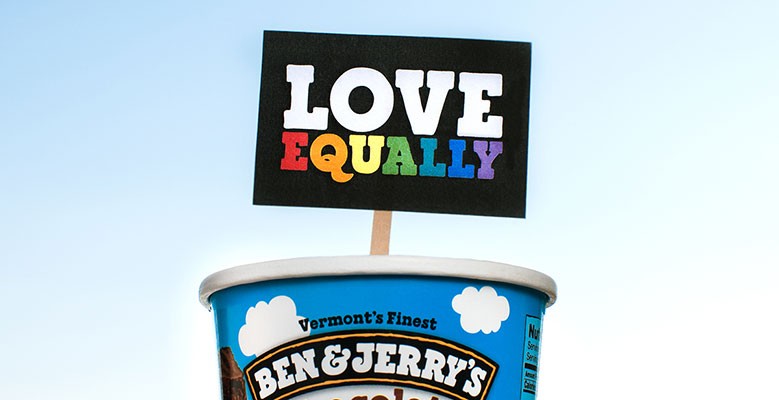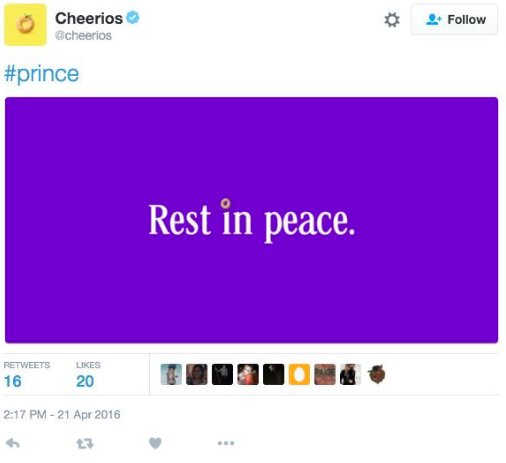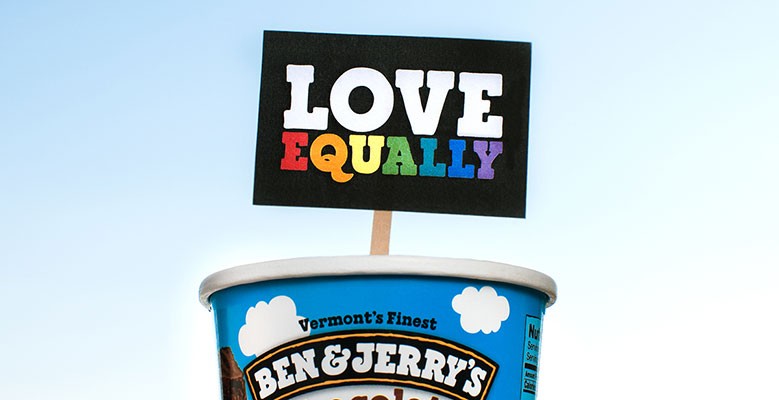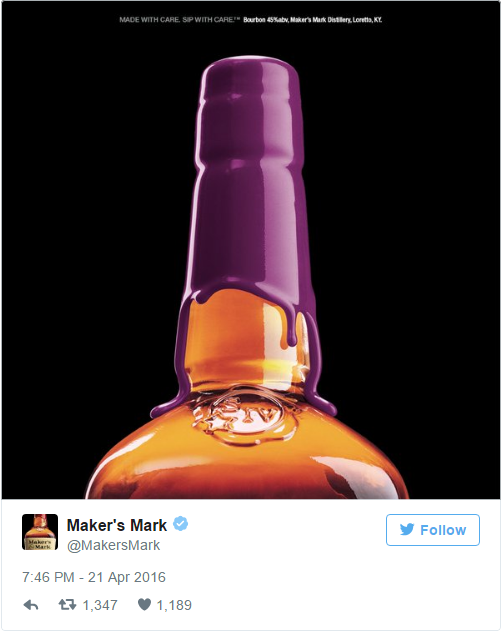With most brands active on social media, there are times in between their brand messages that they weigh in on issues that are arguably beyond their scope. We saw it earlier this year for example with the outrage on Twitter after Cheerios posted a branded message following Prince’s death. Over the last few weeks, over in America, a few brands have gotten involved with the polarising Presidential election- with mixed results. We want to discuss if brands should get involved with world events- and if they do, how to get involved without harming their own business by enraging their fan base and loosing customers.
New Balance
As I Google New Balance at the time of writing this article, the top story is from the Daily Mail, ‘New Balance owners light sneakers on fire after company ‘voiced support’ for Trump’, followed by BBC News and other news sources with similar titles. So what did New Balance do? The VP of the brand told a WSJ reporter on Wednesday that the company feels President Obama has ‘turned a deaf ear’ to it’s concerns, compared to President Elect Trump who will move things in the ‘right’ direction with his policies, come his time in office. The issue revolves around the Trans- Pacific Trade Partnership, which New Balance have been vocal in criticising (Trump’s stance is against this partnership.) Quoted on Digiday, Rachel Saunders, insights and strategy director at The Cassandra Report said, “New Balance taking a stance isn’t the problem, because the majority of youth think it’s OK for brands to be involved in politics. The real issue is that the company’s timing and motivations for the apparent endorsement come off as self-serving. That will rub some people the wrong way regardless of their political leanings.”
Ben and Jerry
Whilst brands are criticised for taking a stance on politics or trying to jump on the band wagon of social media trends, Ben and Jerry’s have always spoken their mind about world events that they are passionate about. On their website they put this down to a three-part Mission; a product mission to make fantastic ice cream. A economic mission to manage the company for sustainable financial growth, and a social mission to use the brand in ‘innovative ways to make the world a better place.’ By being a socially aware brand who run human rights campaigns and are advocates of gay rights and marriage equality, there isn’t the same amount of back lash when they do share their thoughts; as the things they blog about or produce flavors to promote, come across as sincere. The fact the brand has always been a genuine voice for the causes it believes in, people recognise this and Ben and Jerry’s doesn’t come off as jumping on the bandwagon for either a self serving purpose to get more brand interest, or to try to reach millennials.
Their latest campaign comes after the Presidential election. Seeing the division of society, the brand were, ‘concerned that the dominant message we see in society is one of division.’ To remind the viewer there is, ‘one sweet world,’ they produced this video, with a leader with a leafy comb-over, which we all can recognise as Donald Trump.
https://youtu.be/rhSCBldsqaw?list=PLod_QHR_SXj1IwUqXX5_0Wlou4X8TNyi-
McDonald’s
Whilst some called it inspiring and moving, in January 2016, McDonald’s were slammed for a series of billboards referencing tragedies and natural disasters such as the World Trade Center terrorist attacks on the 9th September 2001, the Boston Marathon Bombings in 2013, and the explosion of the Columbia space shuttle in 2003. Critics called it exploitative and tasteless to use tragedies to sell burgers, the Washington Post called it ‘tone deaf’ and a ‘disarming minute of mushy corporate propaganda.’ Social media reacted in a huge way and called the brand out on their poor taste marketing campaign.
The death of Icons
With 2016 seeing the death of many icons, social media saw many tributes for Prince, David Bowie, Merle Haggard and Glen Frey. Whilst it’s interesting to see why some brands were praised for their tributes and others forced to remove them from social media after public outcry, it’s safe to stick to one rule: don’t put your branding on a memorial post on social media.
Some tweets seemed distasteful, such as that from Dictionary.com, who linked their tweet back to their definition, or Maker’s Mark Whisky, who’s photo might pass for a touching toast but actually was a re-purposed image that they’d used the year before. It also wasn’t an appropriate image as Prince was a avowed anti-alcohol activist. Things to learn; if it’s a genuine tribute, make sure it appears that way and not an exploitation to win some more traffic to your site.
Brexit
For Britain, Brexit was the biggest shock in politics for 2016. For brands wanting to weigh in on the debate, as with any vote, there was the chance they’d be on the losing side; and an even bigger risk they’d alienate their customers and shareholders with their politics. For brands that have multiple locations, or based in an area they know held both ‘stay’ and ‘remain’ voters, voters tended to avoid political allegiance when it came to the referendum. With such passion shown from both sides, this was a good decision and perhaps others could learn from this; if a brand wishes to talk about political events, remain neutral, but present.
Macy’s
Some brands are willing to take a stand for their values, regardless if they’ll alienate business. Macy’s stopped carrying Trump brands in their stores last year after comments of President-Elect Trump. Despite the election result, and the wrath of Trump supporters, Macy’s have refused to change their stance. CFO Karen Hoguet when asked about how it could affect the company stated, ‘I’m not going to answer, I have no clue.’
The common thread running through all of the brand blunders, or perhaps getting involved in issues when they should have considered it more carefully, the issues are easy to solve. Unless you’re a brand known to be activists or have an opinion you’re willing to loose business for; it’s best not to comment. If you’re going to give a statement or a post on social media; be sincere with your message- and don’t include your branding.











